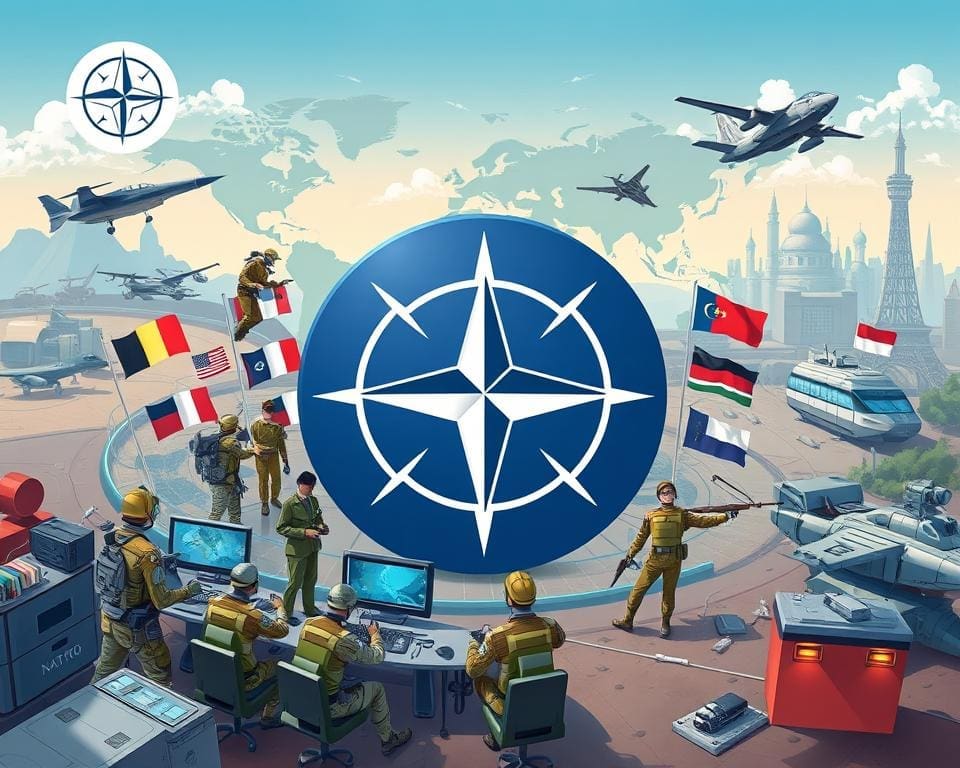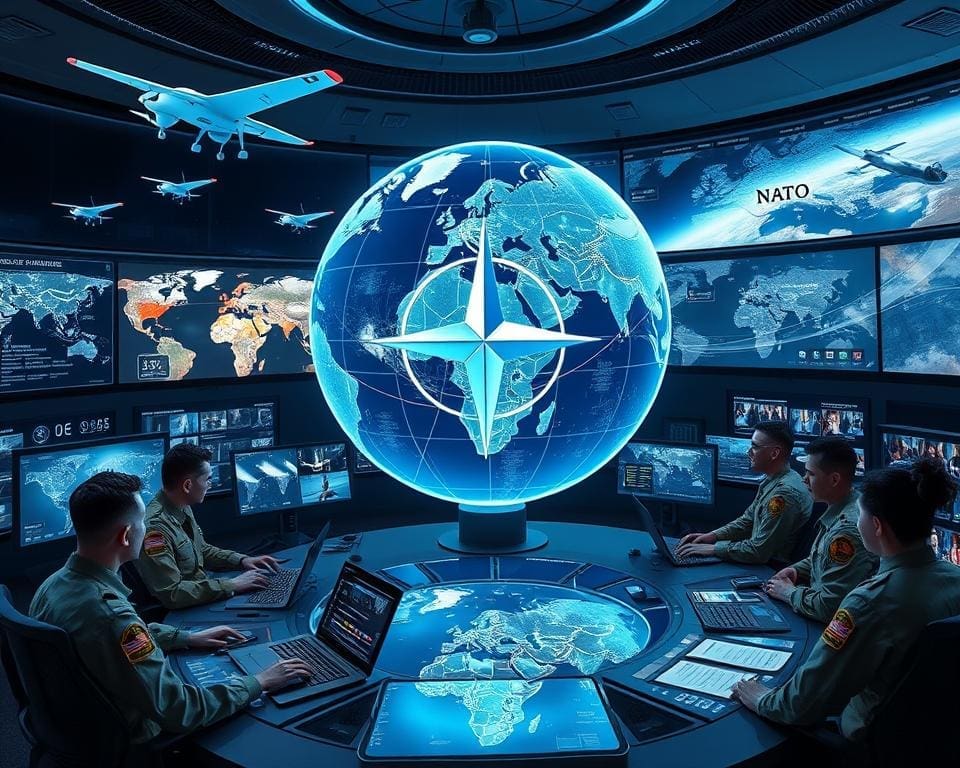NATO has stood as a pivotal entity in shaping the dynamics of international security for over seventy years. The alliance’s influence is profound, extending beyond traditional military strategy into realms of political cohesion and collective resilience among its member nations. As the global landscape evolves, NATO has adeptly transitioned from the deterrence strategies of the Cold War to addressing pressing contemporary threats, such as cyber warfare and terrorism. This adaptability underscores NATO’s role in modern military strategies, reinforcing the significance of defence alliances in an unpredictable world.
The Evolution of NATO in a Changing Global Landscape
The Evolution of NATO has played a crucial role in shaping the international security landscape since its inception. Understanding the historical context of NATO’s formation reveals the necessity for collective defence mechanisms in an increasingly complex world. Established in 1949, NATO emerged in the aftermath of World War II, driven by the need to stabilise Europe and deter potential aggressors during a time of heightened tension.
Historical Context of NATO’s Formation
The historical context surrounding the creation of NATO highlights the fears and aspirations of member nations following a devastating global conflict. The alliance’s formation underscored a commitment to mutual defence, encapsulated in Article 5 of the North Atlantic Treaty, which asserts that an attack on one member constitutes an attack on all. This foundational principle aimed to provide a bulwark against the expansionist threats of the time, fostering a sense of solidarity among nations. The original member states sought to counterbalance Soviet influence, ensuring a unified front in defence of democratic values.
Adapting to New Security Challenges
In the years following the Cold War, the Evolution of NATO demonstrated remarkable adaptability in response to new security challenges. The end of bipolar tensions introduced complex threats such as regional conflicts, terrorism, and hybrid warfare that required a shift in strategy. NATO’s ability to navigate these challenges reflects its enduring resilience and commitment to international security. The alliance has implemented various initiatives aimed at enhancing capabilities and fostering partnerships, both within and beyond its membership, ensuring preparedness in an unpredictable global environment.

NATO’s Role in Modern Military Strategies
NATO has continually demonstrated its commitment to collective defence through various operations worldwide. As an essential part of modern military strategies, NATO’s actions reflect its core mission of ensuring international security for its member states.
Collective Defence in Action
The principle of collective defence remains at the heart of NATO’s military strategy. Notable interventions, such as those in the Balkans and Afghanistan, exemplify successful application of this principle. Each operation underscored not just military capabilities but also the unity of member nations in addressing threats. Current challenges in Eastern Europe further illustrate NATO’s proactive stance in safeguarding regional stability amidst evolving security concerns.
Strategic Partnerships with Non-Member Countries
Building strategic partnerships has become increasingly vital for enhancing military and international security. NATO’s collaborations with countries like Sweden and Finland showcase efforts to foster defence initiatives beyond its traditional membership. Such alliances enable shared resources, joint military exercises, and intelligence exchange, fortifying security across borders. These partnerships exemplify NATO’s adaptability in a changing global context, reinforcing its role in modern military strategies and expanding its influence worldwide.
Strengthening International Security through Defence Alliances
NATO plays a crucial role in enhancing international security through its extensive network of defence alliances. The collective efforts among member countries significantly bolster regional stability, which is pivotal in an era marked by global uncertainties.
Impact on Regional Stability
The establishment of robust defence alliances promotes cooperation among nations, fostering an environment of trust and mutual respect. This collaboration serves as a deterrent against potential aggressors and contributes to overall regional stability. NATO’s engagements in various regions illustrate this impact effectively. For instance, through joint military exercises and peacekeeping missions, member nations work together, remarkably reducing tensions and paving the way for diplomatic resolutions.
The Role of NATO in Humanitarian Assistance
NATO’s influence extends beyond military operations into the realm of humanitarian assistance. The alliance has proven that its military resources can be mobilised for relief efforts during crises. This dual-purpose capability not only aids those in need but also solidifies the legitimacy of defence alliances in the eyes of global citizens. Initiatives such as disaster response operations showcase how strategic military capabilities can lead to life-saving humanitarian intervention, demonstrating NATO’s commitment to protecting human life and fostering stability.
NATO Member Countries: Contributions to Joint Operations
NATO member countries play a crucial role in the success of joint operations, reflecting their commitment to collective defence and shared security objectives. The synergy among these nations strengthens operational readiness and lays the groundwork for effective resource sharing, ensuring that challenges can be faced collaboratively.
Operational Readiness and Resource Sharing
The operational readiness of NATO member countries is vital in maintaining a formidable military alliance. This readiness is bolstered by resource sharing, where nations contribute military assets and personnel, facilitating an agile response to emerging threats. Such collaboration ensures that operational capabilities are not only maintained but continuously improved through shared best practices and mutual support.
Military Exercises and Training Programs
Military exercises serve as a cornerstone in fortifying NATO’s collective capabilities. Regularly conducted joint training programs, such as Trident Juncture and Saber Strike, exemplify how NATO member countries enhance interoperability. These exercises provide a platform for troops from different nations to work together, fostering trust and improving coordination in real-world scenarios. By engaging in these military exercises, member countries prepare to address crises with increased efficiency and unity.
The Future of NATO and its Influence on Global Military Strategies
As we look towards the future of NATO, the organisation stands at a pivotal crossroads, facing a myriad of challenges that could redefine its role in global military strategies. The emergence of non-state actors and the increasing threats of cyber warfare require NATO to innovate and adapt to an ever-evolving geopolitical landscape. Addressing climate change and its impact on international security has become a pressing concern, demanding a collective effort from member nations to develop new frameworks that consider environmental factors in defence planning.
NATO influence will be significantly shaped by its ability to foster collaboration among allies and partners. The commitment to multilateralism is essential not only for enhancing operational readiness but also for strengthening alliances against common challenges. With the rise of asymmetric warfare and hybrid threats, NATO’s strategic approach must emphasise agility and responsiveness, ensuring that it remains relevant in safeguarding peace and security across the globe.
To enhance its effectiveness, potential reforms within NATO are on the horizon. By integrating advanced technologies and promoting joint military exercises, the future of NATO could lead to an unprecedented level of preparedness against diverse threats. Emphasising unity and shared values among member states will be crucial in this ongoing evolution, as NATO seeks to maintain its status as a cornerstone of international security in a complex world.









